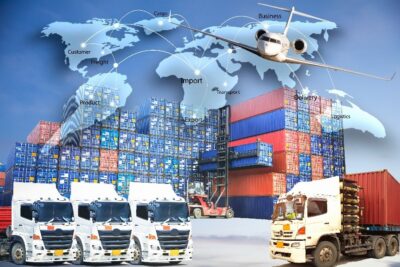By: Christos Linardakis, Senior Counsel
Within today’s ever changing international trade environment companies face a multitude of challenges when it comes to their supply-chain management (“SCM”) and how it impacts operations. No longer is SCM relegated to the shipping office with a single phone line and a list of carriers that can move your freight from point A to point B. The complexities of offshore production, global supplies, duties and taxes, Customs barriers, and documentary requirements have resulted in numerous organizations and firms specializing in just SCM.
The growing complexity of global operations now involves a very large base of suppliers, partners, and carriers, including 3PLs, customers, countries and logistics channels, all of which create challenges for companies and their global legal counsel. The pressures caused by the kaleidoscope of all these parties can be perplexing, especially when it comes to the regulatory and bottom line costs to the company. The supply chain is becoming evaluated more based on costs of transportation, customer service, product fulfillment, and managing of inventory, and on many occasions, in multiple locations across the globe. Having the correct IT and TMS systems, along with a strong global trade compliance program, is of paramount importance to your company.
Cross departmental collaboration and teamwork is a key challenge to driving efficiencies while still addressing the regulatory issues. Optimizing your supply chain is often impacted by the structure of your global trade compliance organization. A few examples of where supply-chain should be interacting with your trade compliance department and attorneys are:
- Procurement: Are you looking at just the total “landed cost” of a product, which includes transportation, fuel surcharges, duties and taxes? If so, what impact does that have on your customer and markets? Many companies fail to look at other direct and indirect factors which could cost them money. Example: Are you doing business with the U.S. government, and if so, do they require compliance with the Buy American Act, or Trade Agreements Act? If so, procuring from China will prevent compliance with these Acts, subsequently causing you to possibly lose business within this market.
- B2B Interaction: Visibility and knowledge of your suppliers’ processes, controls, and systems is a requirement for companies involved in C-TPAT, as well as, companies dealing in the military markets who are subject to the International Traffic in Arms Regulations. Merely taking your suppliers’ “word” on face value that they have the systems and controls in place, is not sufficient, or wise. Example: A relatively recent Export Enforcement Office investigation into a sale of products, which ended up in an embargoed country, required the company to prove the “chain of custody” within their entire supply chain, financial systems and controls. The case involved multiple distributors, requiring the company’s partners to produce evidence of the transaction. Failure for the company to be able to provide that information would have led to potential violations. Contract and distribution agreements must have provisos and clauses that address these specific issues including visibility to customer-side processes.
- Free-Trade-Agreements (“FTAs”): Are your sales and procurement departments actively involved within the supply-chain, along with your trade counsel or compliance department, in order to identify your current global footprint in manufacturing and sales? If not, they may be losing out on the opportunities of duty-free or reduced duties within the regions and countries where they are selling and manufacturing. Closely reviewing the company’s BOMs, customers, and the FTAs which may apply is imperative in order to be competitive and break into new markets. Example: Several years ago, a particular company decided to move production from Ireland to Malaysia. The impact was that they lost duty-free products into certain countries, which led to one of their largest customers questioning why their products suddenly had an increase of 4.5% in cost. The company had to explain that the relocation of their manufacturing resulted in them no longer qualifying for a specific FTA; this in turn, caused them to lose most of the market, as they were no longer competitive.
Working with experienced global trade counsel, who have developed successful programs within various corporations and have intimate first-hand knowledge of these issues, is imperative. Such counsel can train the appropriate departments and individuals, which in turn, could result in substantial savings. In addition, the expertise can lead to increased efficiencies within the supply chain, while addressing issues that arise, sometimes daily, in the overall complexity of global trade.























